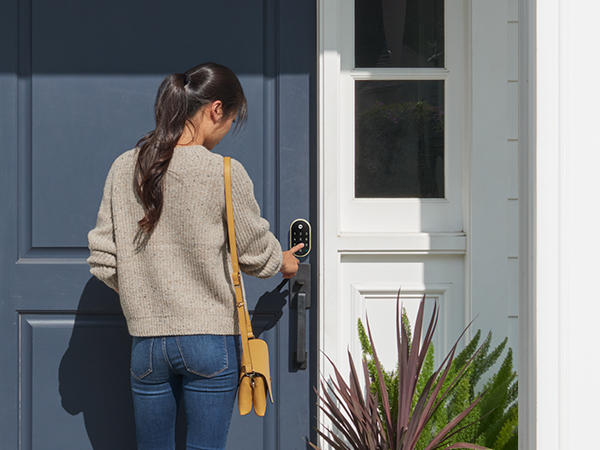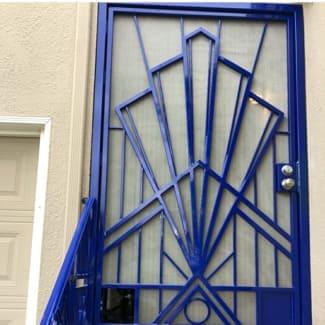
Lifeshield offers a variety of security options for home and small business owners. For a small monthly cost, you get 24-hour monitoring of your home, professional monitoring, as well as mobile access. You can also choose from several different device packages, such as a smart camera, a keychain remote, a touchscreen tablet, and a fire safety sensor. If you prefer to DIY, you can get a basic kit or build your own system.
The basic kit includes the base unit and a keychain remote. The base unit is able to connect to either your landline or cell signal and has a 24-hour backup battery. You can configure this base unit to connect to your existing wireless ethernet or cell network. It is easy to install.
Alexa is compatible for Lifeshield’s home security system. This allows you to control the sirens or arm the door alarms via your phone. You can also use the system with other services such as IFTTT. This allows you to connect your smart devices and get notifications when you are away from home.
In addition to this, the system has a seven-day practice mode, so you can test it before committing to a full-fledged purchase. To register, you'll need to create an account on the Lifeshield website. Once you've created an account on the Lifeshield website, you can add sensors to your system.

Lifeshield has a mobile application. This free app lets you remotely monitor your security system, lock and unlock doors, and receive alerts when your alarm goes off. If you need to contact customer service, you can either call them or send an e-mail.
Lifeshield does have some flaws. The camera is dependent on a power source. It can't be mounted to walls. There are also problems with the hardware.
Lifeshield has been accused of false alarms by some customers. Lifeshield, despite this, is still an excellent option for anyone looking for a low-cost, easy-to-use home monitoring system.
Additionally, the company holds an A+ rating with The Better Business Bureau. Smart Home Scholar Scholarship offers a $1,000 scholarship for college students.
Lifeshield's intuitive interface is another plus. It's easy for your family to get used to the system. Also, it's a great option for families not ready for a professional-grade security system. This makes it a good choice for small to mid-sized homes but not for larger ones.

Finally, the LifeShield system offers a free 24-hour video storage service. You can also opt for a more affordable plan, which will only charge you $25 per month for monitoring.
LifeShield offers a lot for the money but may not be the best choice for you. It's a great choice if you are looking to do it yourself, or don’t have the funds to invest in a system of high quality.
FAQ
What is the difference of surveillance and security camera?
Surveillance cameras may be used to monitor, but security cameras can also be used to protect.
Each camera has its advantages and disadvantages. There is one major difference between the two types of cameras: the type of images that they capture. Surveillance camera record video in slow-motion so you can follow what's happening live. Security cameras on the other side only record video and still photographs, which are saved for later review.
Can I set up a security camera myself?
Yes! You can set up a home alarm if you have some knowledge. If you don’t have the skills to do it yourself then you can hire a professional to help you.
Which Home Security Systems can't be hacked
The answer to this question depends on how you define hacking. Hacking refers only to the unauthorized use of computer systems, networks, data, and programs. Most home security systems cannot be hacked because they do not contain software that allows someone else to control them remotely. They don't permit anyone to enter your home without your permission.
If the home security system is connected to the Internet, however it can be hacked. These systems typically require a password for operation, so anyone who knows the correct password can hack them.
Which home security system has the most features?
Ring Video Doorbell Pro boasts the most features among all of the home security systems we evaluated. It lets you see who's at your door, talk to them through your phone, and even record videos. It also includes a free cloud storage to store any recordings.
What is the best home surveillance camera?
If you want to protect your family from intruders, then you should consider buying a home security system with cameras. These systems are very easy to use, and provide many benefits for homeowners and renters. They allow you to monitor your home remotely from any smartphone, tablet, laptop, or other mobile device.
Which company is the best for home security monitoring?
ADT is the best home security company. ADT offers a 24/7 monitoring service at an affordable price. They offer 24/7 monitoring service and respond in minutes.
ADT offers an app that can be used on both Android or iOS. So you can check your home anytime, anywhere.
Do motion sensors have alarms
There have been motion sensor alarm systems for decades. They have grown in popularity due to increasing burglaries and thefts. These alarms are too costly and won't work in cabinets. If you are looking to protect your home from potential intruders, a motion sensor alarm system might be worth considering.
Statistics
- Depending on your insurance, 24/7 professional monitoring may qualify you for as much as 15% off your premium. (safewise.com)
- Most home security companies will charge you around 75% of the remaining term of your contract if you cancel early—and some require 100%.Related questionsWhat type of contract length can I expect from security providers?Home security system cancellation (safewise.com)
- Cove sets you free without punishing penalties and fees, unlike other security solutions that charge 75% to 100% of your remaining contract. (safewise.com)
- (In my experience, the discount on my home insurance covered about 25 percent of the subscription of an average plan, but your mileage may vary depending on your location and the size of your home.) (theverge.com)
External Links
How To
How to Install A Home Security System
A home alarm system is a device which monitors your home and alerts when there's an activity. It could include a motion sensor or doorbell camera, smoke detectors, flood alarms, carbon monoxide detectors, burglar alarms, and flood alarms. A home security system usually consists of one or more sensors (e.g., motion detectors), which send signals when they detect movement or sound. These signals are sent to a control panel, where they can be monitored and recorded. If something goes wrong, like someone breaking in to your house, the control panels sends an alert to your phone or tablet, your computer, or voice assistant. The control panel will notify you immediately so that you can take corrective action.
You must first choose the right kind of sensors for you home in order to install a home alarm system. There are two main types. Active and passive sensors. Passive sensors don’t need batteries. Instead, they simply pick up sounds or vibrations from the environment. They include doorbells, sirens and buzzers. Active sensors use electricity to transmit data. Cameras and motion sensors are two examples of active sensors.
There are many different brands of sensors available today. Each brand has their own pros and cons. Some sensors are waterproof, others are not. Some sensors have built-in speakers, so they can be heard even when you're not outside. Others only work inside. Others are more complex, while some offer more advanced features like night vision.
After selecting the right sensors for your property and deciding on a manufacturer, you will want to make a selection. This will ensure that all your sensors work together. The hardware store should offer many choices.
After choosing a brand of sensors to use, you can decide how many to purchase. Depending on whether you live alone or with your family, most people will start with just one or two sensors. You might want to buy more sensors if you intend on adding them later.
Next, decide where you want the sensors to go. Do you want them near doors and windows? Or would you rather have them hidden? Before you place them on your property, make sure that you have permission. Make sure that they won't cause interference with any other electrical outlets.
You now know where to place your sensors. Now you need a way for them to be connected to your control panel. A power adapter or battery package may be required depending on your setup. Once you have everything set up, you'll be ready to monitor your property!